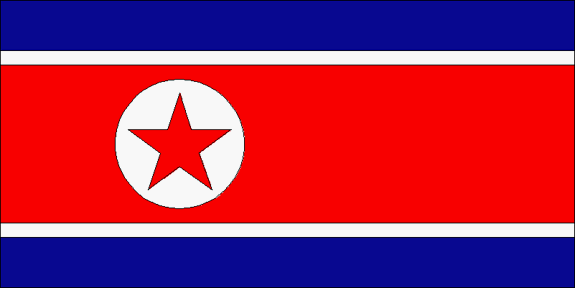





The North Korean military is directly controlled by the Defense Committee which has been elevated to an independent organization next only to the President of North Korea. The General Staff under the Ministry of People's Armed Forces (MPAF), the highest executive organization in military affairs, commands and controls military operations. The DPRK armed forces maintain a single command system: the Chief of the General Staff directly commands and controls ground corps, tanks, light infantry and artillery command, navy command and air command. Kim Jong-il, as the supreme commander of the People's Armed Forces and the chairman of the Military Committee, has overall command of the North Korean military apparatus and exercises direct right of military administration and command.
Under the coordinated authority of the party's Military Affairs Committee and the state National Defense Commission, the Ministry of People's Armed Forces exercises jurisdiction over the KPA. Eight major organizations constitute the national command authoritiesAt the Seventh Supreme People's Assembly on April 5, 1982, the Ministry of People's Armed Forces (along with the Ministry of Public Security and the State Inspection Commission) was separated from the State Administration Council and made responsible to the president alone. On December 24, 1991, however, the constitutional and legal requirements were muddied when it was announced that President Kim's son and heir apparent, Kim Jong Il, had been named supreme commander.
North Korea needed a legal basis if Kim Jong-il was to take full control of the military after he ascended to the position of supreme commander of the people's army, a position without legal or administrative power. The 3rd session of the Supreme People's Assembly revised the constitution in April 1992, abolishing the state president's concurrent chairmanship of the National Defense Commission, and made the commission an independent body. The new 1992 constitution continued a trend of increasing the importance and independence of the National Defense Commission. Links to the Central People's Committee were apparently severed and the commission became directly subordinate to the Supreme People's Assembly. Under previous constitutions, the president was empowered as the supreme commander of the armed forces and as chairman of the National Defense Commission. The 1992 state constitution deleted clauses in the 1972 constitution that stipulated that the president was supreme commander of the armed forces and chairman of the National Defense Commission, shifting powers instead to the Supreme People's Assembly and the National Defense Commission. Under the revisions, the president retains only the power to recommend the election or recall of the chairman of the National Defense Commission. The younger Kim assumed chairmanship of the commission in April 1993.
The National Defense Commission was separated from the central committee at the 1st session of the 9th-term Supreme People's Assembly in April, 1998, and was given a status equal to its former ruling body. The 1st session of the 10th-term Supreme People's Assembly on September 5, 1998 enhanced the status of the National Defense Commission to a top organ of the state by placing management and direction of all military affairs and defense projects under the commission's authority.
The National Defense Commission presently consists of a chairman (Kim Jong-il), the first deputy chairman (Cho Myong-rok), deputy chairmen (Kim Il-chul and Lee Yong-mu), and six commission members (including Kim Young-chun). All members are selected to a five-year term. The National Defense Commission has the power to direct all activities of the armed forces and national defense projects, establish and disband central defense institutions, appoint and dismiss senior military officers, confer military titles and grant titles for top commanders, and declare a state of war and issue mobilization orders in an emergency.
The Korean Workers Party [KWP] Military Affairs Committee determines broad security policy, including basic military policy, political indoctrination of the armed services, resource allocation, and high-level personnel matters. The committee has under its jurisdiction both the regular and paramilitary forces. The Military Affairs Committee consists of between ten and twenty party officials, typically military officers.